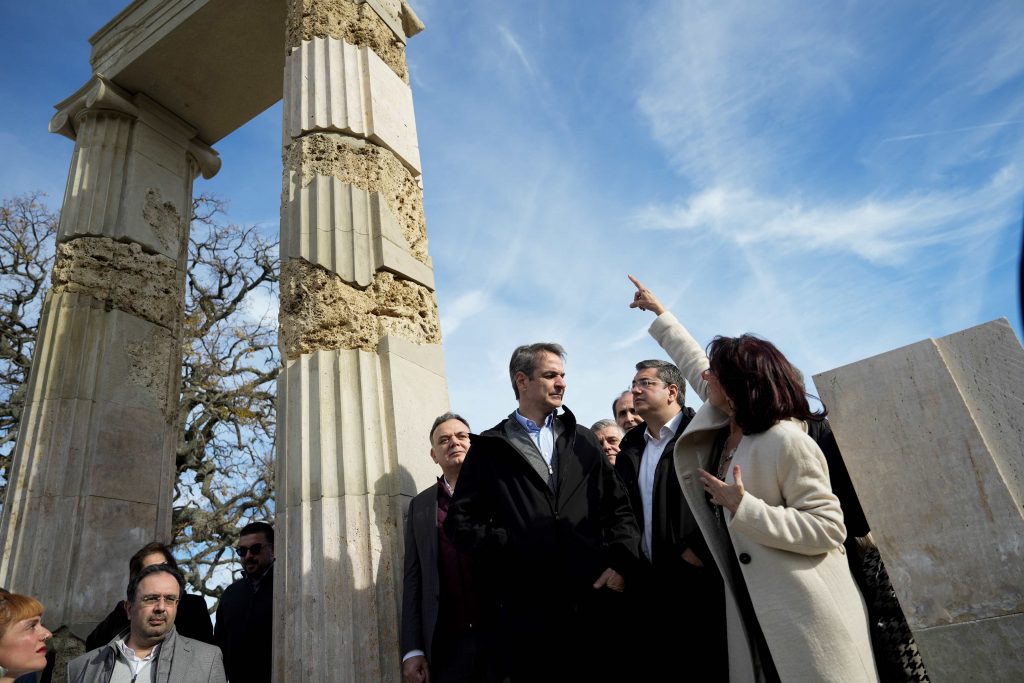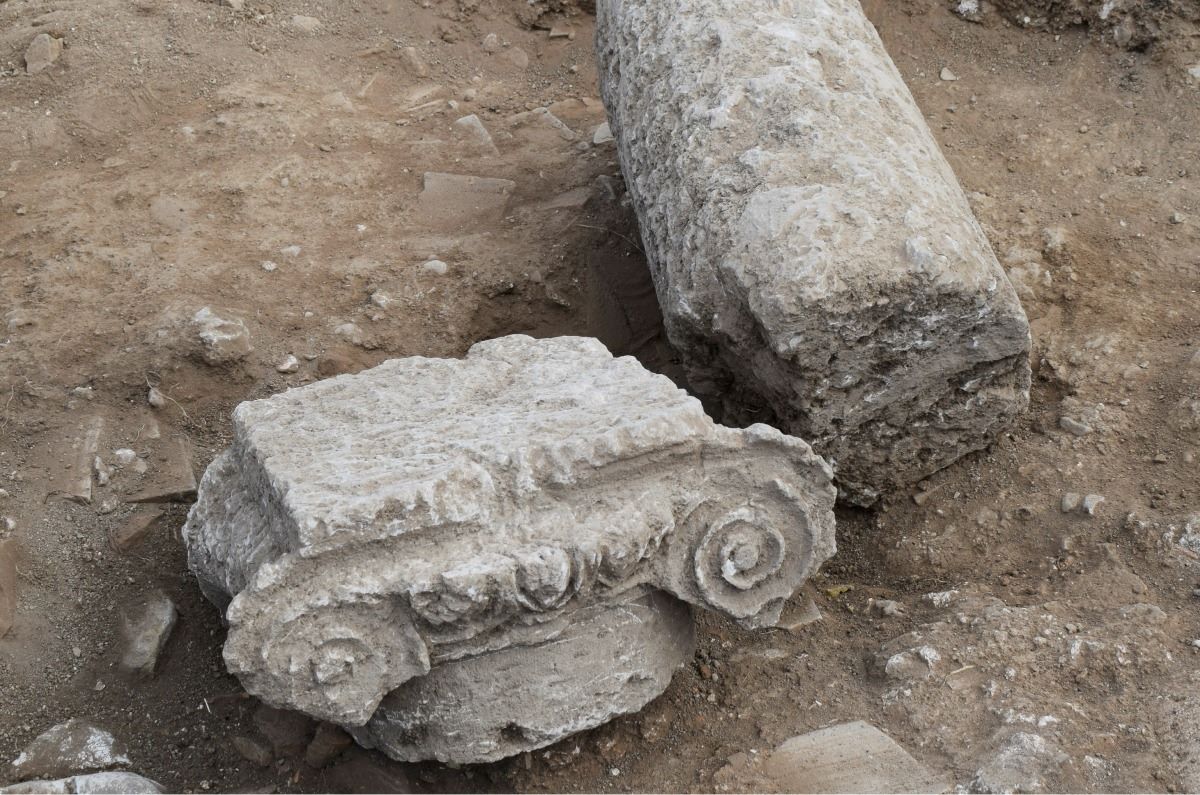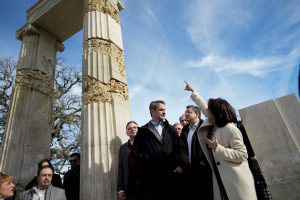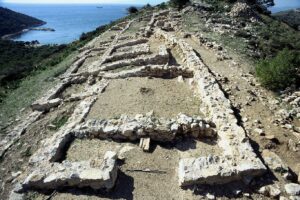The archaeological program “Ancient Tenea” taking place at Hiliomothi Korinthias of the municipality of Tenea in the Peloponnese concluded its excavations, October 2023, bringing to light impressive findings regarding Archaic and Hellenistic times.
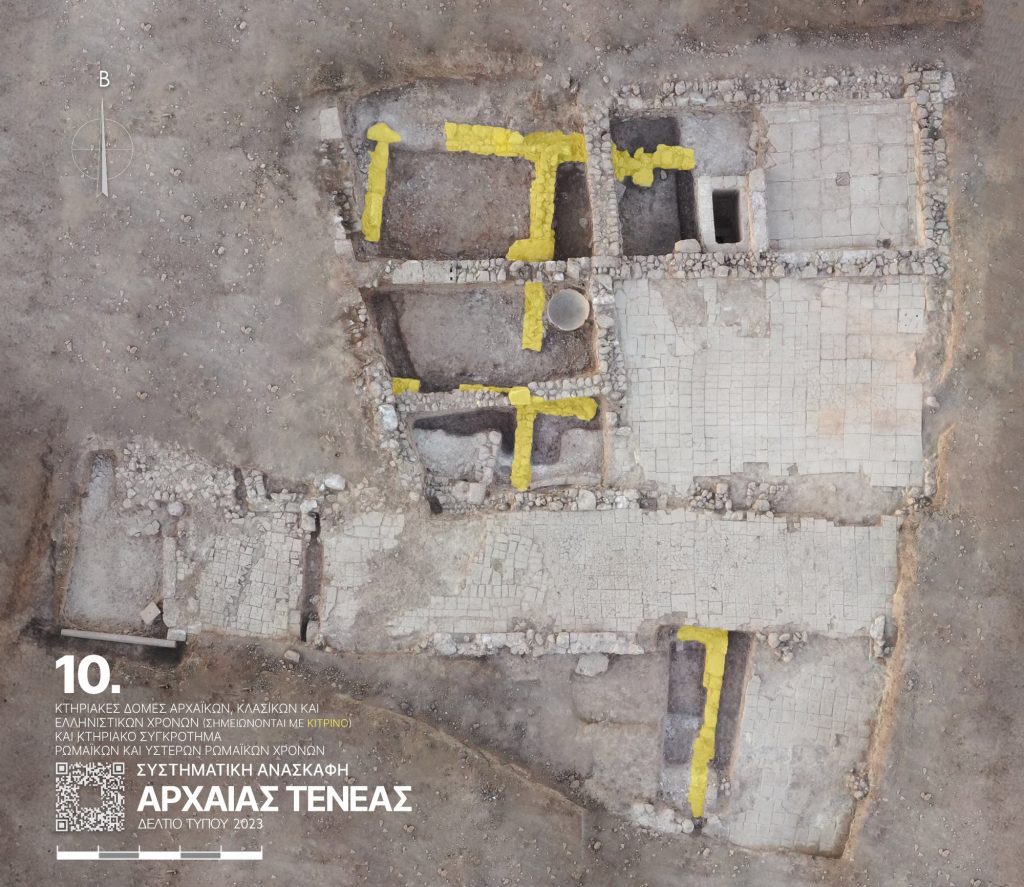
More specifically, a section of the Hadrian aqueduct in the area of ancient Tenea was revealed; one of the largest hydraulic projects of the 2nd century BC in the Greek wider region.
At the same time part of a prehistoric settlement of Tenea was excavated, dating back to the Bronze age (2,600-2,300 BC) before the fall of Troy.
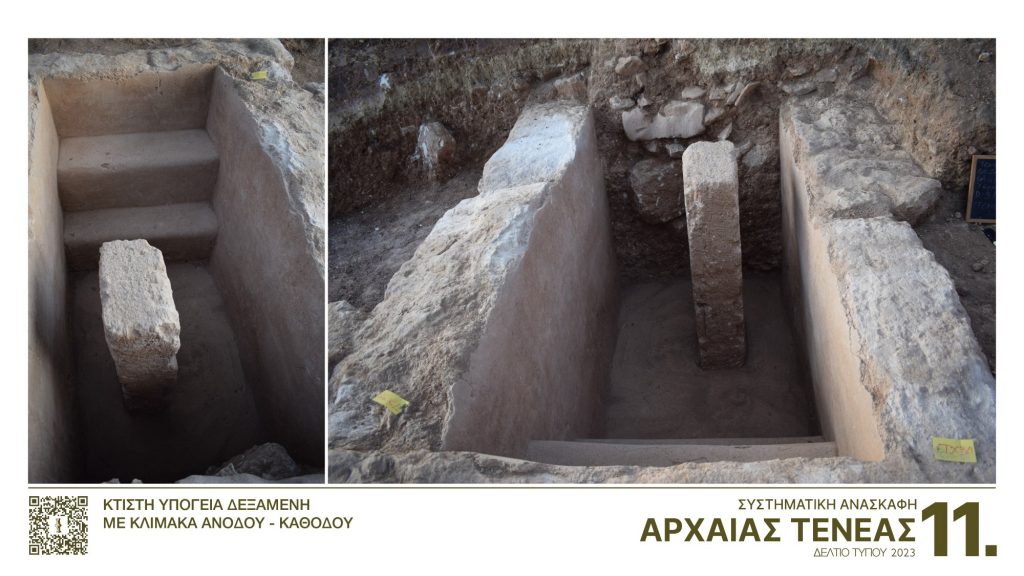
Additionally, an architectural complex dating from the late Archaic to the Hellenistic periods was uncovered including areas for religious use and three reservoirs.
Of archaeological significance are the 29 ancient Greek silver coins found that date back to the period from the late 6th century BC to 330 BC including rare coins minted in Olympia during different Olympic Games.
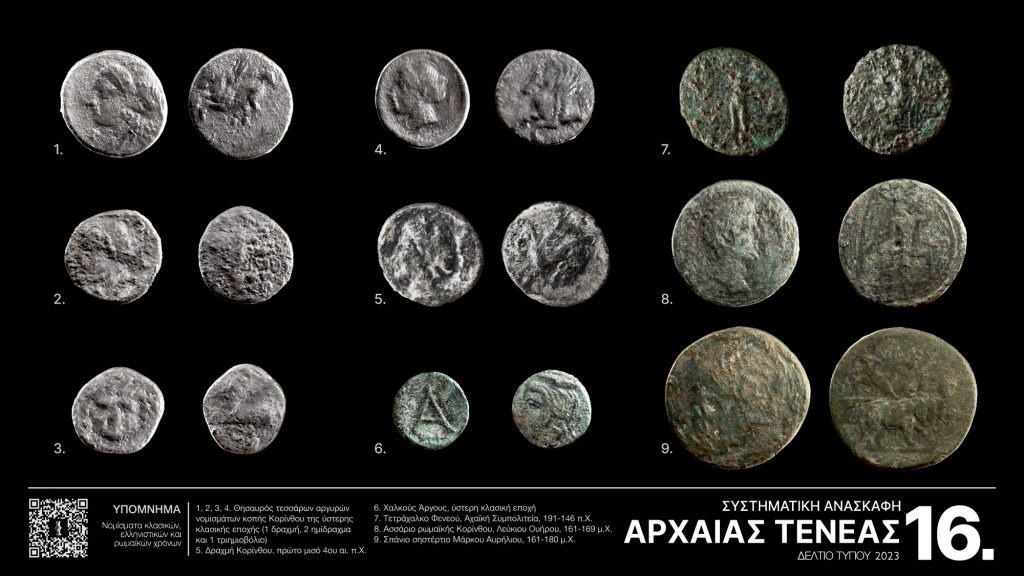
In the upper archaeological layers, two architectural complexes from the Roman and later Roman periods were uncovered.
Finally, in the cemetery zone and adjacent to the Roman funerary monument II, tombs from Roman times and a cluster of Archaic period tombs were excavated.
The excavation was carried out under the direction of archaeologist Dr. Elena Korka and implemented by the Directorate of Prehistoric and Classical Antiquities of the Ministry of Culture.
